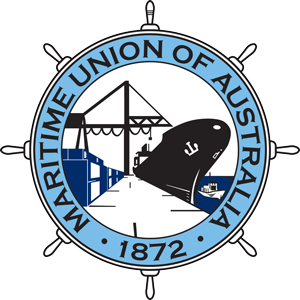The Australian Maritime Safety Authority (AMSA) has a constant process of revising Marine Orders, which are regulations under the Navigation Act and the Domestic Commercial Vessel (DCV) National Law Act that govern all aspects of maritime safety. The MUA seeks to review all proposed Marine Orders to see how they will affect members and maritime safety in Australia, and to make a submission wherever possible.
The MUA has made submissions to AMSA on the following proposed new Marine Orders:
Safety and Emergency Arrangements (Marine Order 21): AMSA is proposing an amendment to introduce new damage control drill requirements for passenger vessels. We made the point that this measure and other safety measures in MO 21 should apply to all vessels, not just RAVs regulated under the Navigation Act. Implementing the measure in this way exempts most passenger vessels from having to comply with it, no matter the size of the vessel or number of people it carries. The Marine Order also allows crew with DCV qualifications to serve on RAVs under 3000 GT. The MUA recommended:
- the entire Marine Order is applied to Domestic Commercial Vessels, including sections on emergency signals, emergency drills, mustering passengers, damage control, and atmosphere testing which only apply to RAVs
- that Section 10 is removed, so that only appropriately qualified masters and crew are permitted to operate Regulated Australian Vessels.
DCV qualifications (Marine Order 505): For more than a year, AMSA has been revising Marine Order 505 (Certificates of Competency). The draft Marine Order applies to the increases the following qualifications under the DCV National Law.
- General Purpose Hand
- Coxswains 1 and Coxswain 2
- Marine Engine Driver 3, 2, 1, and Engineer Class 3
- Master <24m, Master <35m, and Master <80m
The proposed Marine Order makes a whole series of changes that extend the duties that can be performed by people holding a Certificate of Competency, such as increasing the size of vessel or level of responsibility they can hold. However, the level of training and experience required for these certificates is already insufficient, and there are no provisions to increase the training or experience. In some cases less experience will be required. These changes will jeopardize safety, and the MUA is opposing them. Details are outlined in our submission.
The MUA has participated in an Industry Reference Group that AMSA has been consulting with while drafting the revised Marine Order. AMSA opened the consultation to the public in September 2019, and conducted a series of information and consultation sessions around the country, most of which were attended by MUA members and officials.
Safe Containers: Marine Order 44. The updated marine order now incorporates written standards for offshore containers, which were previously not included in Marine Orders. The new Marine Order (s.23) also includes the power for AMSA inspectors and surveyors to give orders to prohibit or stop loading of containers and to carry out additional inspections of containers at their discretion during and after loading. The new Marine Order came into effect in July 2019. The MUA requested that AMSA produce a fact sheet outlining the new processes and provisions in the Marine Order for handling offshore containers and circulate to the industry and unions.
Offshore Industry Units: Marine Order 47. AMSA is proposing a new Marine Order for offshore industry units, which will replace the current two Marine Orders (47 and 60) which regulate safety on drilling rigs, FPSOs, and FSOs. AMSA was seeking to have the new Marine Order come into effect on 1 October, but we have been informed that this is now delayed.
The new draft Marine Order:
- removes the requirement for FPSOs and FSOs to be taken out of the water and thoroughly inspected in a dry dock every 5 years, to ensure that they are safe and seaworthy.
- has been stripped of operational safety standards and reduced to requirements that are only administrative in nature.
- has been stripped of any penalty for operators who infringe standards.
- does not include a requirement for AMSA to inspect international flag offshore units operating in Australian waters.
- does not include a transparent requirement for units to have the necessary marine crew on board to ensure safe operation of vessels when they are disconnected from the seafloor.
Vessel safety certification and civilian nuclear-powered vessels: Marine Order 31. AMSA was aiming for a new Marine Order to take effect on 1 October 2019, but we understand that this has now been delayed.
The MUA opposed parts of the new Marine Order including:
- Introducing substantial new provisions for AMSA to approve nuclear reactor installations, do nuclear safety assessments, and issue safety certificates for civilian Australian registered nuclear-powered vessels,
- extending the period required for passenger vessel surveys from 1 year to 5 years, and
- providing for Certificates of Survey that can be obtained without a survey for vessels under 10m in length.
Exemption to seafarers rights for seafarers on government vessels: AMSA is seeking to move this long-standing exemption from a Marine Order to an Exemption. The Government Vessel Exemption exempts seafarers on government vessels from a whole raft of seafarers’ rights provisions. It has been in place in different forms for a long time, but we made the point that it is not justified and should not exist – particularly in relation to the Maritime Labour Convention.
AMSA was aiming for the new Exemption take effect on 1 October 2019, but we understand that this has now been delayed. We also made the point that in moving this provision from a Marine Order to an Exemption, AMSA removes parliamentary oversight of rights for seafarers. This exceeds the powers the AMSA CEO should have, and runs contrary to our MLC obligations as outlined in the Navigation Act.

